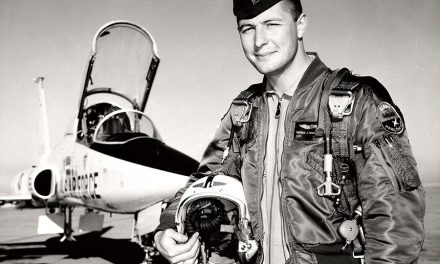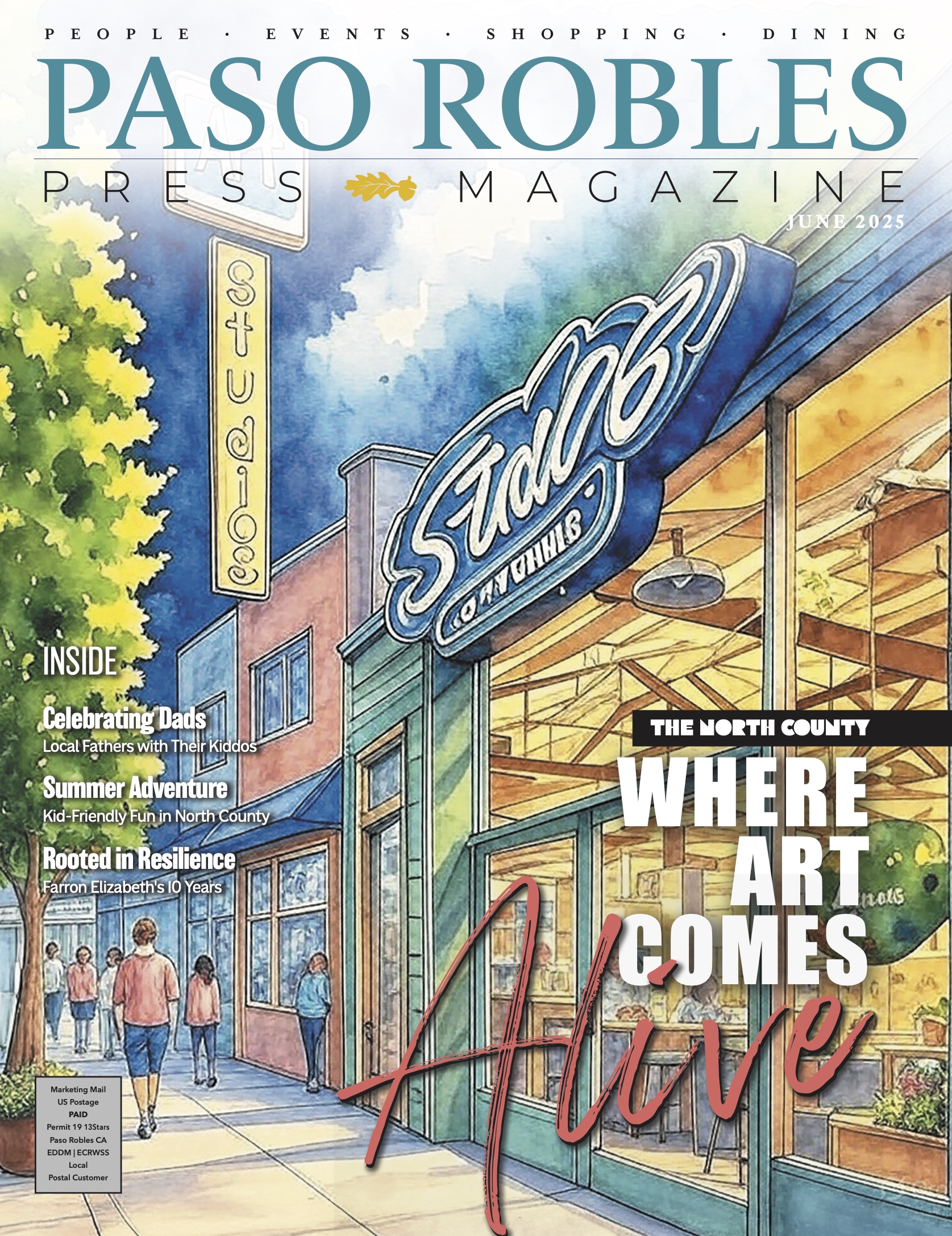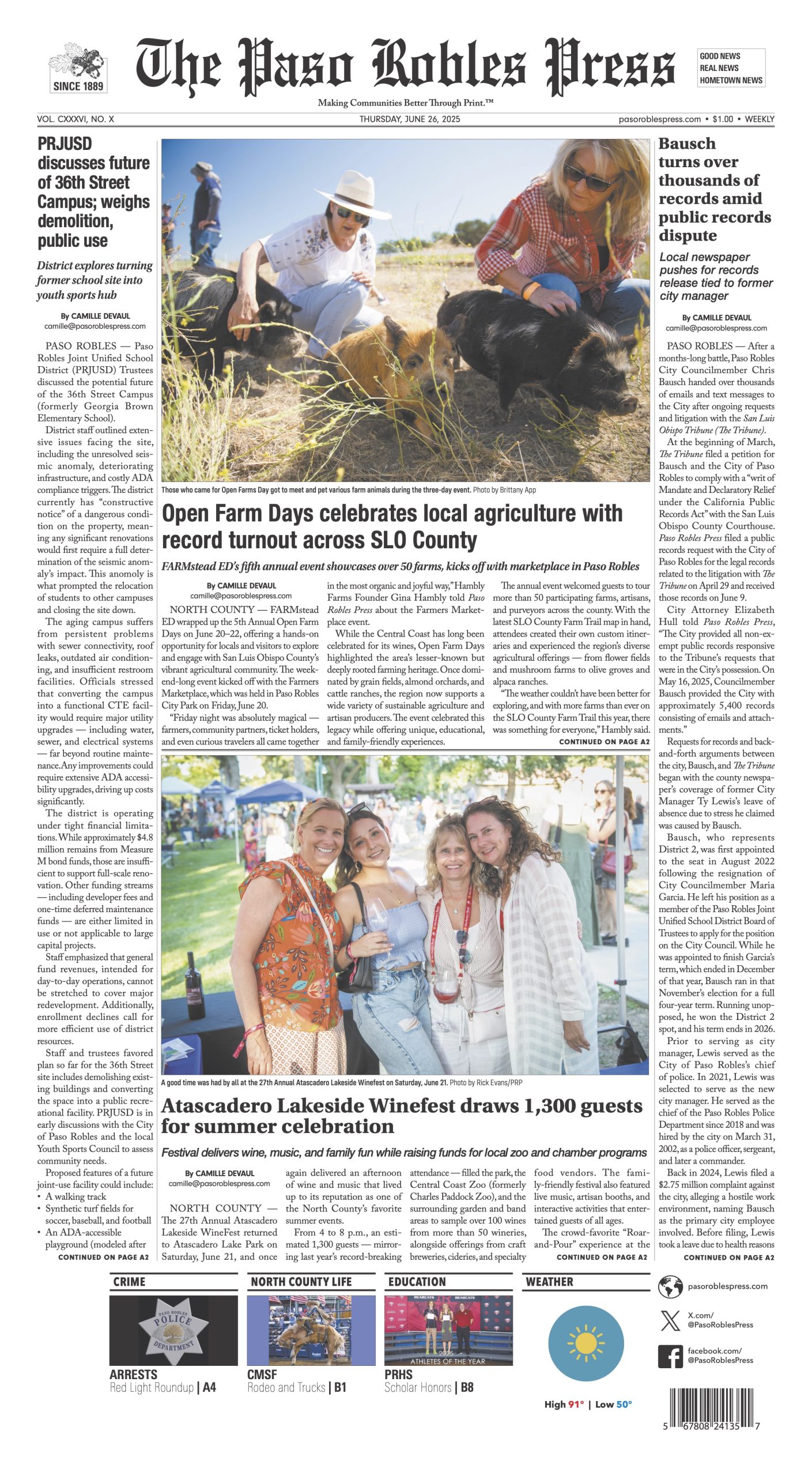The American Civil War lasted four years and four weeks from 1861 to 1865. In that period, 655,000 soldiers were killed plus an additional 50,000 civilians and 80,000 slaves. While the War remains the most written about of all U.S. Wars, I’d guess that with each passing decade, it boils down to five well-known topics: Slavery, Lincoln, Booth, families torn apart, and a massive loss of life.
It’s even difficult to enumerate which states were on which side. Recently I watched a comedian talking about her home state of Missouri and she wasn’t even sure if Missouri (by way of its location) ever even entered the War. Records are getting murky — which brings me to El Paso de Robles.
While not a student of the War, I suspect that few, if any from our area, went off to fight. It wasn’t until 1867 that there was a stagecoach stop for mail here and in 1868, Hot Springs changed its name to El Paso de Robles. These events were 2-3 years after the war ended. There couldn’t have been more than a couple hundred people living in our berg during the Civil War.
So, could there be local artifacts in Paso that came from the Civil War? How would they have gotten here? Who would have brought them? Where are they? Great questions indeed, and I have a tiny sliver of an answer. I know where two are!
In the October issue of your Paso Magazine, there was an article about the Central Coast Woodworkers. About eight years ago, they were given a donated wagon to rebuild. It was, for all practical purposes, an old farm wagon that was no longer needed and was donated to Pioneer Museum and Pioneer Day Committee. There wasn’t really any information about it as the donor just wanted to get rid of it. The woodworkers dug in and the first thing to do was get back to basic wood and see if it was any good. As they scraped away, the letters “US” began to appear across the front. With its rather unusual size and shape, research began and it didn’t take too long to realize that what they were working on was a Civil Way Troop Transport wagon!
With tall steel-rimed wheels and a not-so-deep box, it was perfect for carrying soldiers. On the two outside sides would have been angled trays that held backpacks, provisions and rifles. Where the wagon came from and how the heck it got to Paso … well, that’s a mystery, but the thing is beautifully preserved.
Pioneer Museum recently received a donation of a tobacco-smoking pipe also from the Civil War. Made from Walnut, this pipe has about 20 micro-inscriptions carved into it which represent various battles of the War that the carver, General Benjamin Davis, fought in. He was born in January 1806 and died in January 1890. Flags, battle names and the date, June 28, 1865 (11 days after Lee surrendered) are among the tiny but visible carvings. It remained in the Davis family and was handed down one generation after another until it landed with Margie Danley in Paso. It was she who decided that there were so many generations back, she wasn’t clear how many “Grands” were in front of the word “father.” Not only that but she’s not sure which side he fought on or where he was from … maybe a relative of the comedian in Missouri? When she donated it, Margie said that it rightfully belonged where many could see it and it’s heritage.
Anyway, I’m out of space but if you’d like to see these items, come on down to Pioneer Museum on Riverside Ave. On November 15 from 5 to 7 p.m., there will be a larger tribute to local military men and women who served. Admission is free.









